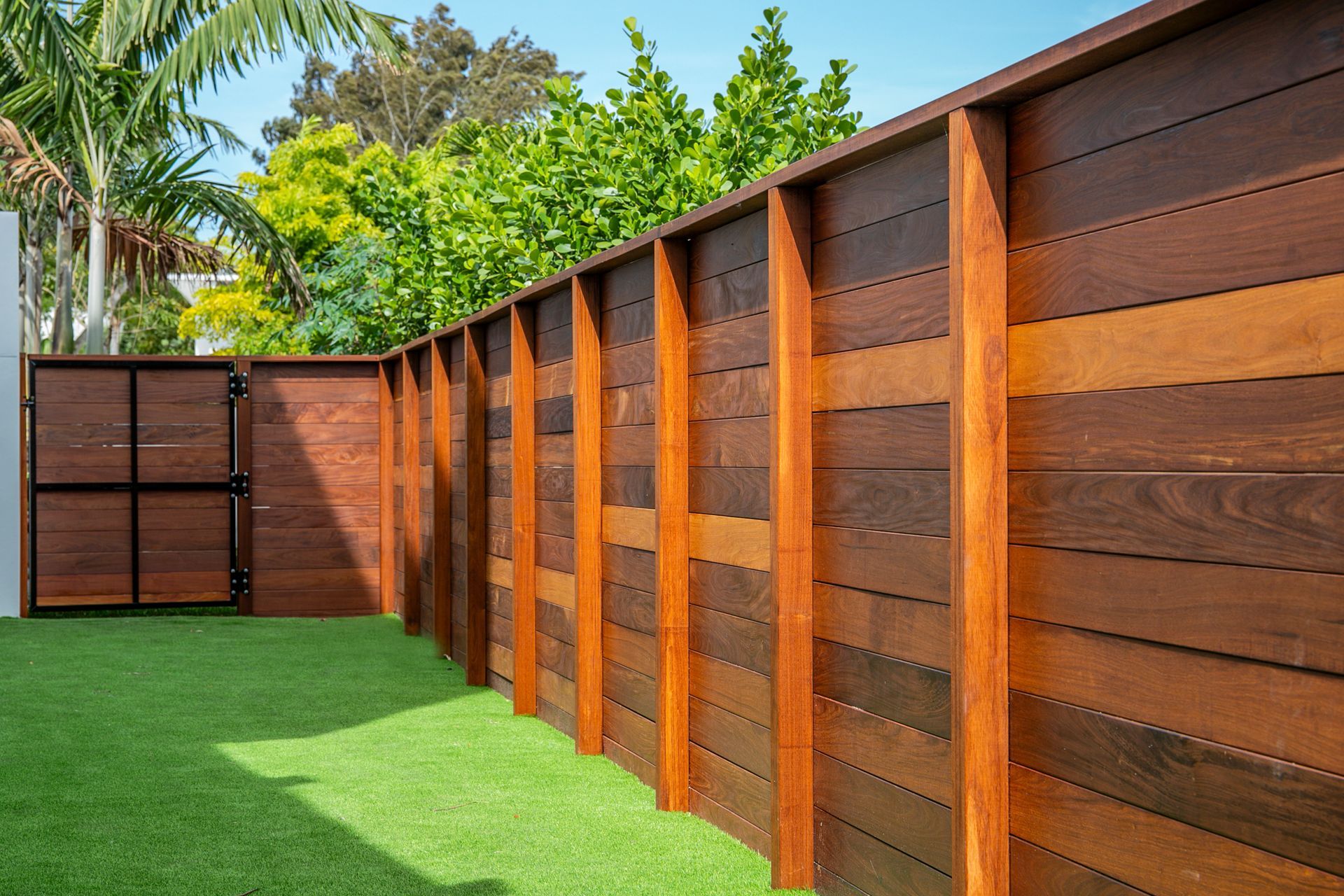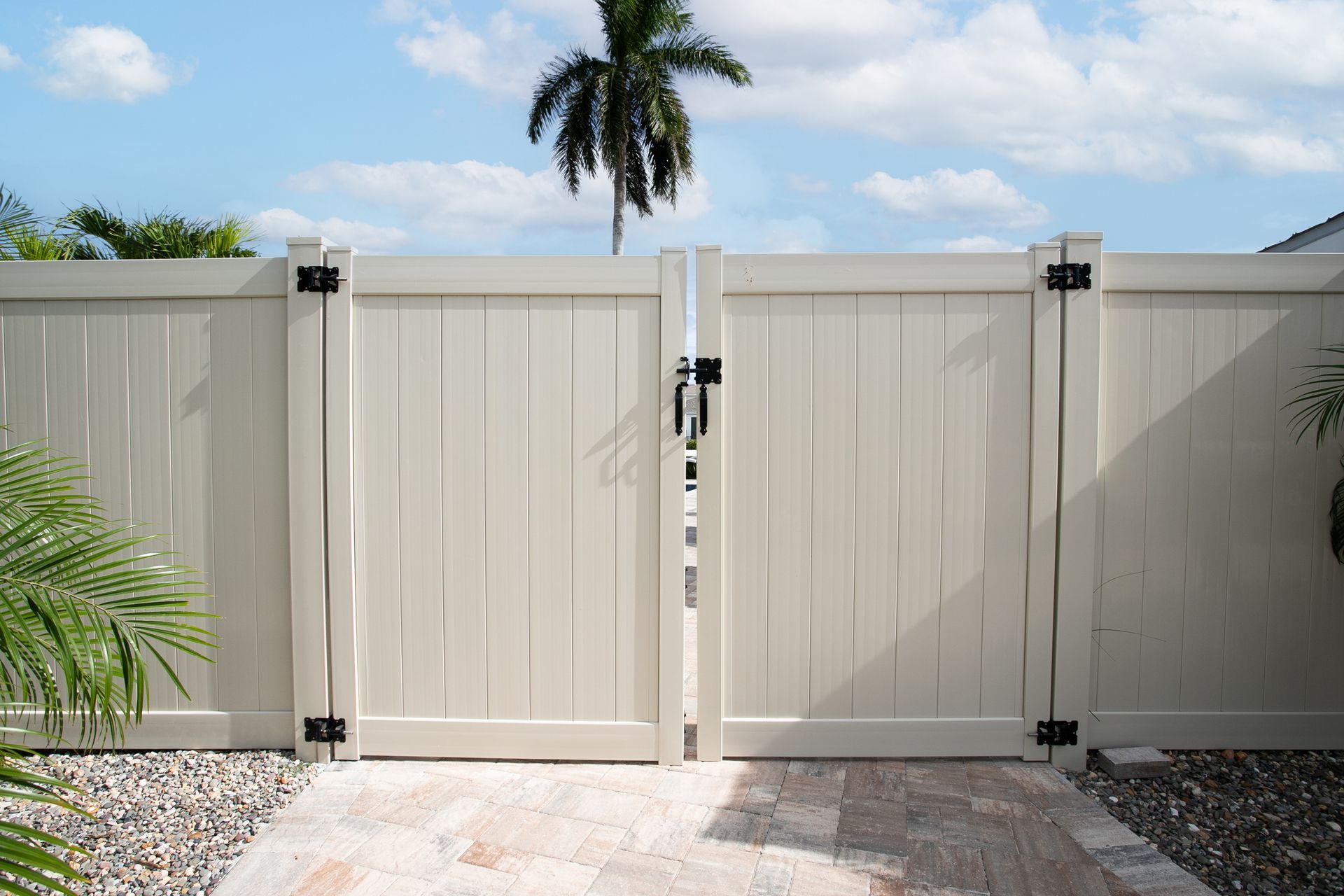The Most Durable Privacy Fence

Of all the available fences that you could have installed outside your home, privacy fences are probably the most common. Simply put, privacy fencing is used to give homeowners a measure of privacy by adding a visual barrier to prying eyes.
When it comes to these particular types of fences, there are two that stand out: wood fences and vinyl fences. Each one has its high and low points. Overall, a vinyl privacy fence provides plenty of benefits in terms of longevity & durability.
There are a number of reasons as to why that is, but to paint a clearer picture, it’s best to go through the pros and cons of each type of fence.
Read on further to find out more. Is Vinyl Stronger than Wood Fencing?
Wood Privacy Fence Vs. Vinyl Privacy Fence: Pros and Cons

Wood Fencing: Pros
Beautiful and Classic Aesthetic: When one thinks of what a classic American house would look like, it would definitely have that beautiful white picket fence upfront—and for a good reason too! Not only are they highly functional, but they're downright gorgeous!
Wood fences make for a classic look that exudes elegance. As simplistic as it may sound, this fence is far from being a set of plain planks of wood jutting out of the ground. In fact, it comes in many beautiful natural shades and can also be stained & sealed.
Low Upfront Cost:
Aside from their beauty, what makes wood fences so attractive to the American public is their low, upfront costs. Take note, however, that the price of wood can fluctuate depending on the type you choose. For example, spruce fences are significantly more affordable than redwoods or tropical hardwoods. Given that, you may have to factor in this detail when considering the cost of a wood fence.
Easy Repairs and Replacement:
One of the biggest advantages of a wood fence is how easy it is to repair or replace broken parts. This is largely due to how these fences are constructed.
Unlike most other types, those made out of wood come in distinct portions per segment. According to
The Spruce, wood privacy fences have three parts: posts, rails, and in-fill panels/boards. When a particular part breaks, you just need to replace that broken component. This is a large contrast to other materials, where you’d have to replace an entire panel even if only one portion breaks.
Wood Fencing: Cons
High-Maintenance: One of the biggest concerns that homeowners have with wood fences is that they are notoriously high-maintenance & require a great deal of protection. As a natural substance, wood is prone to rotting, warping, and termite damage.
While that may be the case, this doesn’t mean that wood fences are “weak.” In fact, the beauty of this material is that you can add layers of protection via treatments and regular care. The emphasis, however, is on “regular,” as such treatments have to be performed at least once a year to ensure that it stays in perfect shape.
Short Service Life: As stated, wood fences need regular maintenance to maintain longevity. On average, the life of a wood fence is only 10 to 20 years, depending on the type of wood and the aggressiveness of the maintenance procedures done on it. Vinyl, on the other hand, can last upwards of 30 years.

Vinyl Fencing: Pros
Low-Maintenance: Vinyl fences are incredibly low-maintenance. The most that you’ll need to do is give it a good wash, and it should look as good as new again! Vinyl is a synthetic material, meaning that it doesn't rot or warp and is built to withstand the elements.
What’s more, since it is non-porous, it can survive prolonged bouts of heavy rain without any fear of damage. Although mold and algae can grow on the surface, a simple cleaning is all that's needed to bring a vinyl fence back to life.
Long Service Life: The biggest benefit of having vinyl fencing installed around your home is its long service life. As stated earlier, a vinyl fence can last up to 30 years (sometimes even longer), with very little upkeep. While it can most definitely break and require repairs, it would take a lot of force to do so. What’s also great about vinyl is that it won’t splinter even when broken, so it's essentially kid and dog-proof!
Wood-Like Aesthetics: Thanks to the advancements in the manufacturing industry, there are a lot of modern designs that will make your vinyl fence appear more "wood-like." This means that you can get all the benefits of vinyl while still keeping the glamorous aesthetic of wood. While that may be the case, there are noticeable aesthetic differences that still make real wood a notch more unique.
Vinyl Fencing: Cons
Limited Customization: One of the biggest drawbacks of vinyl fencing are the limited customization options. Unlike with wood, where your imagination is the limit, the design options for vinyl fencing are entirely based upon the availability of the manufacturers.
Repairs Mean Panel Replacements: Because of its design, vinyl fencing components are usually sold in large panels instead of individual parts. As such, when a portion breaks, it will often require that the entire panel be changed. This is a large contrast to wood, where a damaged area simply requires minor part replacements.
While that may be the case, vinyl is very difficult to damage—so this is usually an extreme consideration to think of.
Final Thoughts
Given the pros and cons, it can be easily concluded that vinyl is the most durable option for a privacy fence. With its minimal maintenance needs and long service life, it’s a material that will withstand the test of time. However, a wood privacy fence is still a great choice, as its aesthetic appeal is simply top-notch. At the end of the day, the material you choose for your privacy fence all depends on your style and needs, as both materials have their selling points that make them desirable to discerning homeowners.
Mon-Fri: 8am-5pm • Sat-Sun: Closed
Financing, Cash, Check & All Major Credit Cards
License: FL CBC Lic. #1263682
4385 Independence Ct,
Sarasota FL 34243




